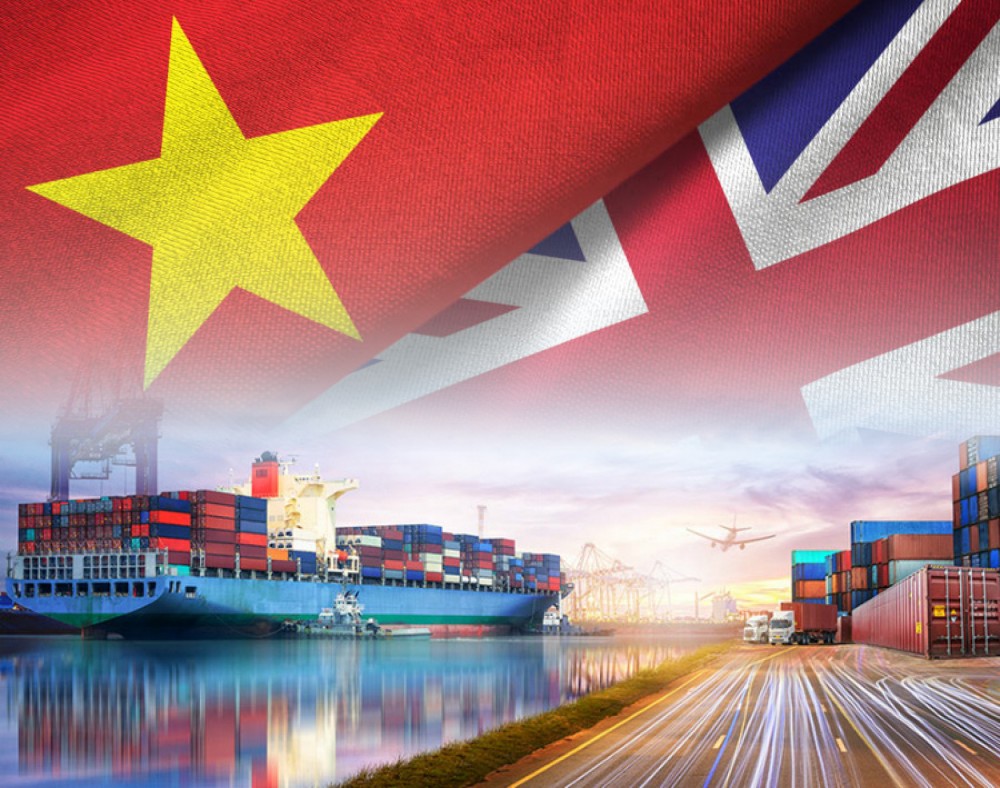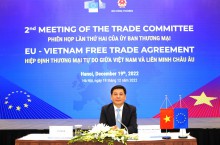The News
UKVFTA's main commitments in SPS
Sanitary and phytosanitary measures (SPS) are mandatory regulations and requirements of a country for goods imported into its territory in order to protect the lives and health of people, animals, plants and/or prevent diseases originating from animals or plants. SPS commitments under the UKVFTA are prescribed in Chapter 6 of the Agreement. In general, the provisions of the SPS Chapter in the UKVFTA are built on the basis of the principles of the WTO SPS Agreement and the standards, guidelines and recommendations of international standards-making organizations.
Sanitary and phytosanitary measures (SPS) are mandatory regulations and requirements of a country for goods imported into its territory in order to protect the lives and health of people, animals, plants and/or prevent diseases originating from animals or plants. SPS commitments under the UKVFTA are prescribed in Chapter 6 of the Agreement. In general, the provisions of the SPS Chapter in the UKVFTA are built on the basis of the principles of the WTO SPS Agreement and the standards, guidelines and recommendations of international standards-making organizations.
Sanitary and phytosanitary measures (SPS) are mandatory regulations and requirements of a country for goods imported into its territory in order to protect the lives and health of people, animals, plants and/or prevent diseases originating from animals or plants.

1. Overview of SPS commitments in the UKVFTA
SPS commitments under the UKVFTA are prescribed in Chapter 6 of the Agreement. In general, the provisions of the SPS Chapter in the UKVFTA are built on the basis of the principles of the WTO SPS Agreement and the standards, guidelines and recommendations of international standards-making organizations.
The commitments can be divided into 2 groups: standard commitments and trade facilitation commitments.
The standard commitments include: Scope of application, Objectives, Definitions, Authorities, etc. These articles affirm the rights and obligations of each party under the WTO SPS Agreement. Viet Nam and the UK commit to apply WTO principles in the formulation, application or recognition of any SPS measures.
The trade facilitation commitments include: List of enterprises meeting the requirements, equivalent recognition, and flexible regulations for the UK's SPS measures for Viet Nam, specifically as follows:
2. UKVFTA key commitments in SPS
2.1. Equivalence recognition
In FTAs, the parties agree on equivalent recognition procedures for SPS measures applied by each party to reduce quarantine barriers for agricultural and aquatic products and food exports from one party to the other. According to this procedure, the importing party will recognize the exporter's SPS measures as being as effective as its country's SPS measures if the exporter proves that its SPS measures achieve a level of protection for human, animal and plant health, equivalent to the SPS measures of the importing country.
While some FTAs do not stipulate a time limit for consideration of equivalent recognition, in order to facilitate the import and export of agriculture, fisheries and food for enterprises of the two sides, the UKVFTA stipulates to shorten the equivalent recognition consideration period by 3 months compared to WTO regulations (6 months) from the time of receiving the request. For specific content, the Agreement allows equivalence principles to be accepted for one or more SPS measures, for one or a certain group of goods, more specifically for the whole system.
2.2. List of enterprises meeting SPS requirements
The UKVFTA allows each Party to establish a List of enterprises exporting agricultural and aquatic products and foodstuffs that meet food hygiene and safety requirements to send to the other Party. This list includes the names of enterprises with codes corresponding to export items issued by state management agencies. Vietnamese enterprises listed on this list will be able to export goods corresponding to the code issued to the UK market without having to go through the enterprise inspection stage. However, Vietnamese enterprises may be removed from the List if the UK's regulator finds that the farming, processing, packaging, etc. process does not meet quarantine regulations during routine inspections.
2.3. Some flexible provisions for SPS measures
The WTO allows members to enact SPS measures of high standards to protect human, animal and plant health as long as they are based on science (not for trade protectionist purposes). For developing countries like Viet Nam, it is relatively difficult to meet high standards in developed countries such as the US, EU, and Japan so that goods can enter these markets.
In order to facilitate the export of Vietnamese goods to the UK market, UKVFTA stipulates that Vietnam can choose 1 of the following 3 solutions if it has difficulty meeting a UK SPS measure:
- The UK gives Viet Nam a transitional period to comply with this measure;
- Viet Nam proposes an equivalent SPS measure and asks the UK to consider recognition;
- The UK provides technical assistance to help Viet Nam gradually meet this measure.
The UK will provide technical assistance to Viet Nam's specific needs to comply with its SPS obligations, and will also consider enabling Viet Nam to maintain export opportunities while ensuring the UK's level of protection.
3. Authorities and points of contact
On the part of Viet Nam
The Ministry of Agriculture and Rural Development is responsible for animal and plant health; monitor and control measures aimed at preventing the occurrence of epidemics that negatively affect human and animal health, and is also responsible for conducting and managing a comprehensive program to control and prevent the invasion of pests that negatively affect the health of plants and the economy; and for export animal and plant products, the Ministry is also responsible for inspection, quarantine and certification to ensure it meets the requirements and standards of the UK; and
The Ministry of Health, the Ministry of Agriculture and Rural Development and the Ministry of Industry and Trade, are responsible for food safety for users.
On the part of the UK
The UK shall be responsible for controlling production conditions and requirements, including statutory inspections and the issuance of health and animal welfare certifications to ensure compliance with Vietnamese requirements and standards; and
The UK shall be responsible for controlling imports in compliance with the UK's import conditions.



